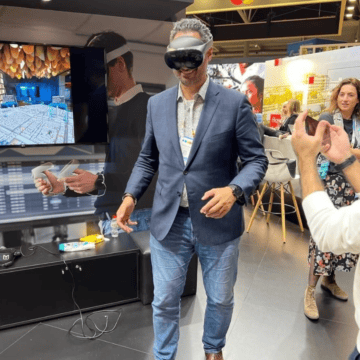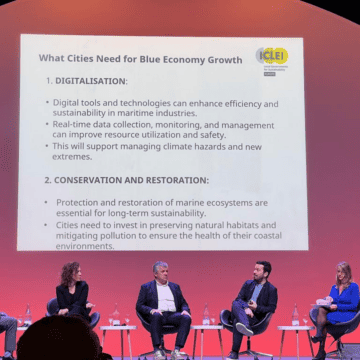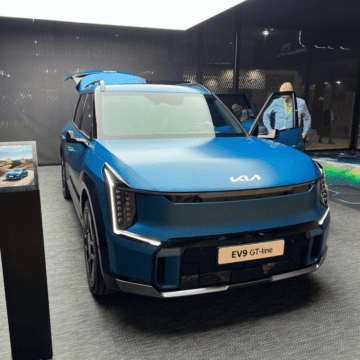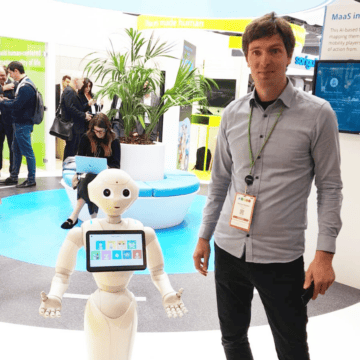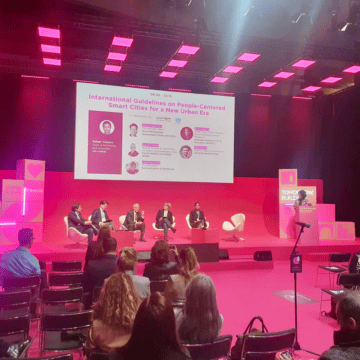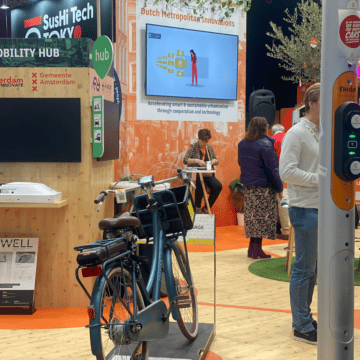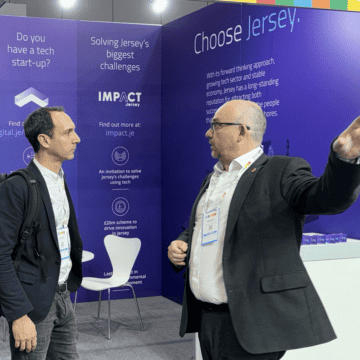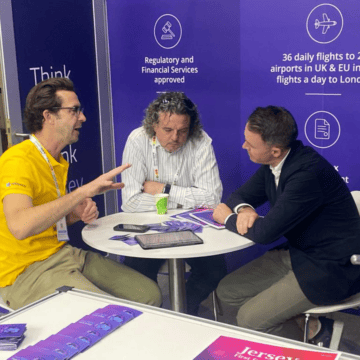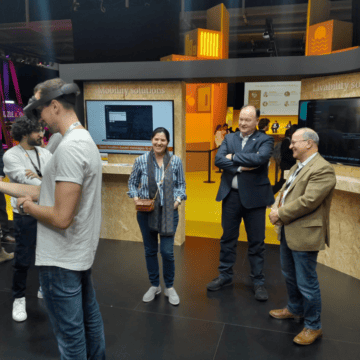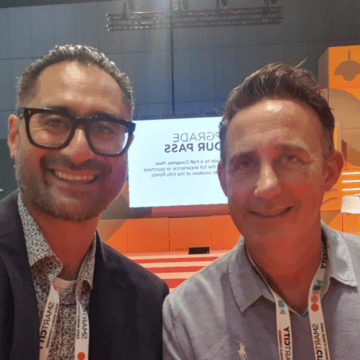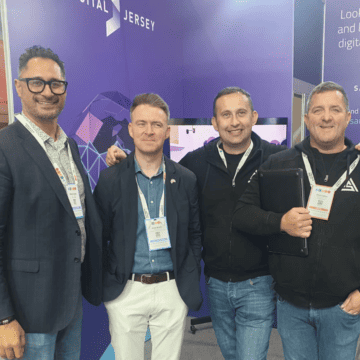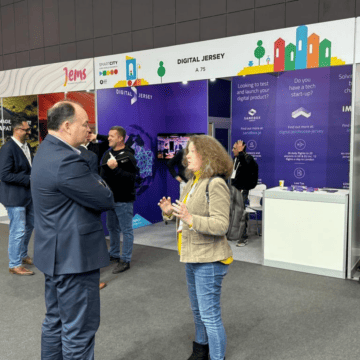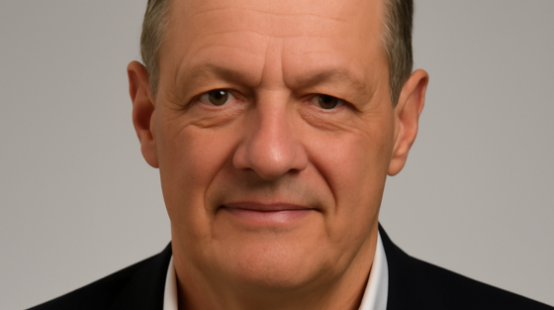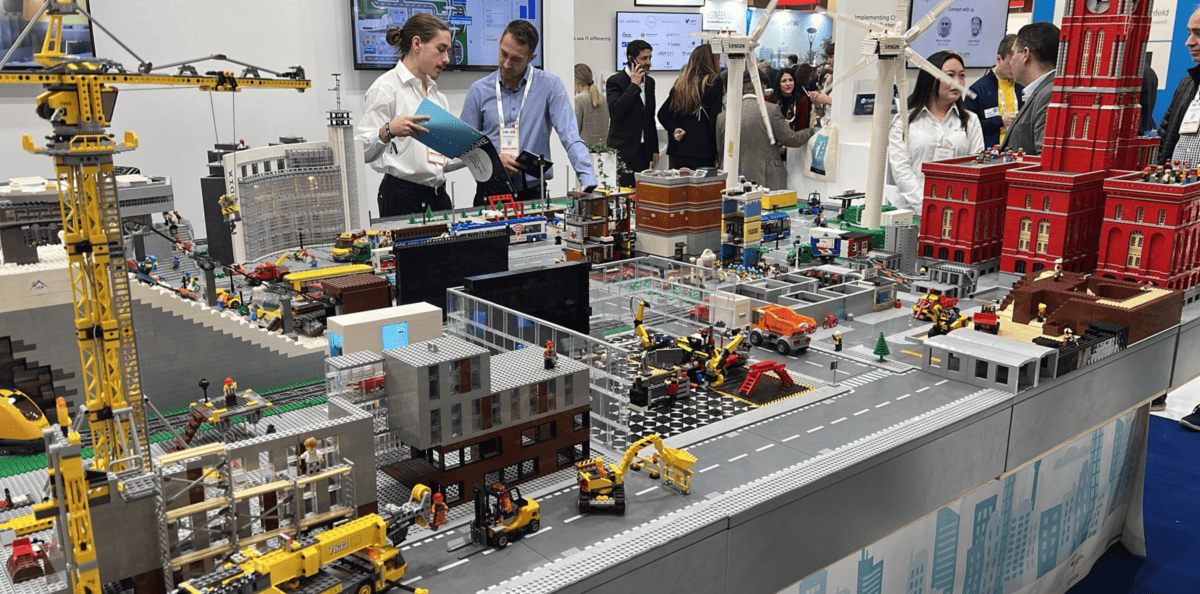
What a week! Having written, lobbied, and even dreamed about smart connected cities for most of my professional life (since 2008), I can honestly say the Smart Cities World Expo blew my mind… and I don’t think I’m over exaggerating!
Some numbers to give you a sense of the event’s magnitude: there were 800+ cities and 140+ countries represented, with 1106 exhibitors and 25,000 attendees. There were 273 sessions, with 577 speakers.
The Importance of a Harmonious Ecosystem
Earlier in my career, back in New Zealand we had been considering why we lost the Olympic games to Sydney in 2000. Auckland was up there with the best we thought… why didn’t we win? After some soul searching and a couple of consultant bills later, we discovered what we knew deep down – we were scoring own goals because we had a set of self-inflicted barriers.
We had population growth outpacing and out-ageing the workforce, 8 different councils making 8 different planning regimes, over 40 years of under-investment in infrastructure, with no business certainty, no plans for skills and certainly no cross-regional connection ability. Every system was under pressure. Cities are an interdependent ecosystem, with many systems ‘artificially’ separated, with issues staying within their respective departments. But as we grew in size, we grew further into self-defined silos … everything became disconnected. A harmonious eco-system it was not.
Fast forward a couple of years and the dial had been shifted significantly. Legislative change, and the dissolution of the councils into one unitary authority resulted in one vision and one plan. We went on to win many sporting global events and created the momentum needed to get things done to compete on an international stage.
The Art of the Possible
The Smart Cities Expo also showcased the art of the possible. Here are a few examples of what we saw:
- Robot waiters delivering drinks and wandering through a crowd of 25000 people every day;
- Smart pipes that measure the toxins and nutrient levels and materials in waste/sewage water and detect fat bergs – (if you don’t know what fat bergs are – look it up but don’t eat while you’re doing it – you’ve been warned!);
- Scanning and defect detection of roads and highways;
- Digital twins, AR and VR cities;
- Apartment pods being manufactured in 28 mins and then stacked lego-style to make high rise residential buildings.
Jersey is not unique in its challenges
Inspired, our team began to form a collective view – Jersey is not unique in the challenges we face, and other jurisdictions are in fact further along the journey to resolving them. Like a city, the island of Jersey is its very own eco-system. It’s a dynamic environment with many interdependencies. But we too have multiple systems operating on island that continue in isolated silos, and the net result is that we don’t always deliver up to the potential that citizens deserve.
I’ve grown to really be passionate about Jersey and the opportunities it provides for many of us newbies who’ve chosen to make this tiny little rock our home. So, it’s from this position I’m discussing why we need to modernise – or die. A phrase I have aptly stolen from Mark Farmer’s groundbreaking report on modern methods of construction to the UK government and the construction industry.
Inspiration to bring back home
Barcelona was a melting pot of ideas, innovators, cultures. So as a small delegation facing a packed schedule, we headed off in different directions. Here are just some of the topics I managed to attend which have potential application to Jersey:
- Open Innovation Procurement Challenges
- Enhancing Infrastructure to Enable Autonomous Mobility
- Tech tools: Unlocking Smarter Buildings
- Transforming Cities through AI
- Making Waves: Pushing the Boat Out on Waterborne Mobility
One stand out speaker for me was Lou Celi, Chief Executive of Thought Lab Group, who’d recently published a report on Building a Future-Ready City. He had examined over 200 cities, 67 countries, and governance structures and officials responsible for 385m residents – that’s 4.8% of the world’s population (I noted Auckland was not in scope).
It turns out that future-ready cities use digital innovation partnerships, and new business models to ensure that urban domains are fit for purpose for many years ahead. Crucially, they integrate plans across urban domains and generate greater economic, social and sustainable value. Cities within the study had planned to spend an average of $422m, cumulatively over the next five years on technologies and solutions across their urban domains. Smaller cities tended to spend half ($367m) compared to larger cities ($651m).
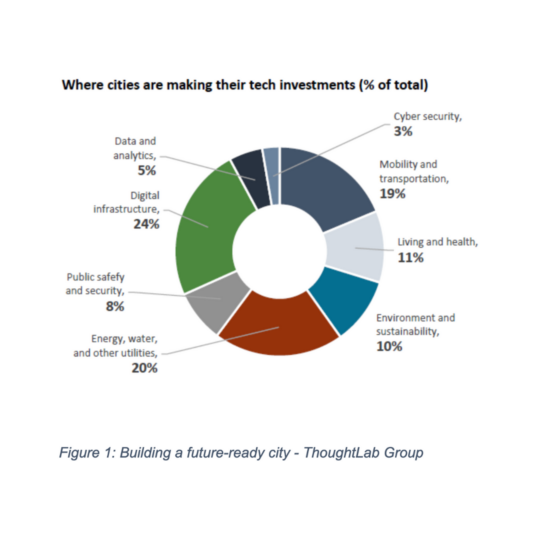
Figure 1: Building a future-ready city – ThoughtLab Group
Open Challenges
Another stand out session was the Open Challenge Procurement pitch, which brought together a range of cities and agencies looking to solve complex issues. One by one project leaders pitched their challenge projects and what they were looking for from innovators – it was great to see – and of course I’m thinking we should be back next year to pitch our Impact Jersey challenges to the market!
Another key highlight was the Samsung area – the smart buildings in particular and how they showed they can deliver pods in 28mins – was mind blowing. We spoke about smart cities, but they were interested in Jersey as a place to do business and we spoke of future opportunities to engage and forge new relationships.
Conclusion: Smart Cities vs Smart Islands
So are the elements applicable to a Smart City actually applicable to an Island? I would argue a definite yes. The built environment will need to evolve as people needs evolve. Cities will look to shorten supply chains, shorten travel times and manage limited and scarce land supply, respond to climate change, increase health and education outcomes, build smarter affordable homes, create food baskets providing access to fresh food and more. In essence a modern and future-ready city needs to deliver services for all its citizens and an Island does too.
Through schemes like Sandbox Jersey and Impact Jersey our Island can set the standard to become the Smartest Island on the planet. I don’t think that’s too far out of reach. The digital infrastructure is here already with the fastest fibre in the world. We have 5G on the way. Let’s get rid of all the self-inflicted barriers and crack on to modernise every system we have to deliver better for every citizen not just today, but tomorrow and in generations to come. If we don’t, we are dead in the water.
